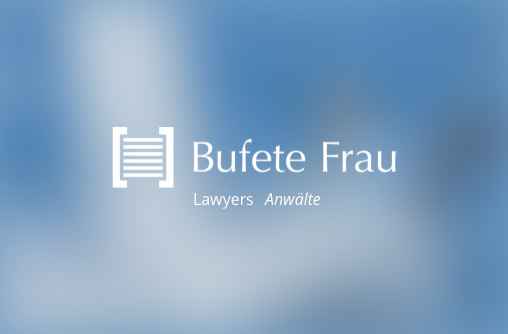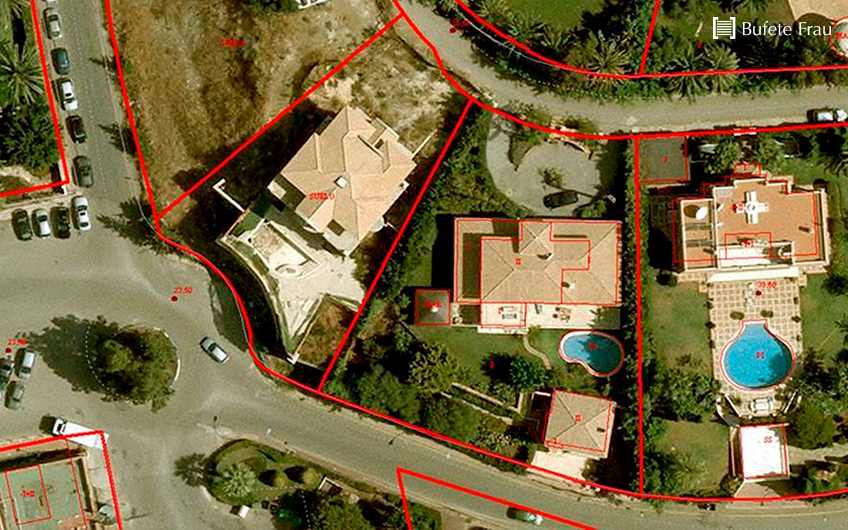
If you have reached the decision to sell a property on urban land, we would recommend that you contact a professional person in order to verify and check the documents and necessary proceedures, whereby when there appears a possible purchaser or their lawyer, the sale can be carried out quickly, easily and with success.
There are a series of documents and information that are basic and any agency, professional or person involved should have this available from the beginning, as the following:
1. PARTIES OF THE OPERATION: SELLER AND PURCHASER
1.1. NIE
Both the purchaser as well as the seller must be correctly identied and both must hold a Foreginers identification number (NIE). Normally the seller already holds an NIE, but the purchaser must request this in order that the future public deed of purchase/sale can be registered in the Property Registry office.
In the case of an entity, this must hold the equivalent number, known as CIF.
1.2. Representation
It must be identified if those acting are in their own name or through representatives. In the case of acting through a representative, the p.o.a must be through a notary and in force and, in the case of being a foreign public document, duly stamped with the apostille and legalized, together with its sworn translation.
In particular when it be a company or another legal entity, we must know clearly who acts and in what capacity: agent, sole or joint administrator, managing director, etc. The p.o.a’s or deeds must always be identified, as they will be necessary to draw up the corresponding deed of purchase/sale.
1.3. Special attention to the economic marriage system
Mainly with respect to the purchasing party, it is always beneficial to ask at the begining his/her marital status and, in the case of being married, under which economic system the marriage took place, as, in the case of having signed a marriage settlement, we must provide the Notary and the Registrar said settlement, with the apostille stamp and sworn translation. Therefore, if from the begining we have this clear, we will save problems and delays in the notary.
1.4. Act of beneficial owner
When dealing with legal entities, the act of beneficial owner must be previously granted.
1.5. Tax residency of the sellers
If the Sellers are not tax resident in Spain, by Law the purchaser is obliged to withhold 3% of the value of the property (without counting the value of the furniture), for this to be transferred to the Tax office in concept of payment to account of the future tax that the seller must pay, in his case for gains obtained.
Therefore, in the case that the seller be foreign, but be a tax resident in Spain, he must provide the Notary with the corresponding certificate from the Tax office in which is stated that, in effect, he be a tax resident. It is important to not confuse this certificate issued for this reason by the Tax office with the residency card or census certificate as these have nothing to do with this matter.
1.6. Nationality of the purchasers.
When the purchaser be a citizen of a non European country and wishes to purchase a property on rural land, it will be necessary to request militlary permission. This permission takes at lease six months to be granted, whereby the period of the operation will be considerably longer.
We wish to mention this permission in this guide of purchase/sale on urban land, because it may occur that, an urban property in the Property Registry office still appears as a rural property and, in this case, the Notary and the Registrar will require this permission.
2. OBJECT OF THE OPERATION: THE PROPERTY UNDER SALE
2.1. Simple note issued by the Property Registry office
Where appears the owner or owners of the property, the description of same and if there are or not any charges. If we also have a copy or the original deed in which the property was purchased all the better. In other words, the deed of purchase/sale, or the inheritance deed, donation, etc.
Concerning the charges, this will have to be studied in order to see if they can be cancelled or not. The most common ones being the following:
- Mortgages
- Preventive notes for claims or seizures
- Easements of any type
- Community rules and other pacts
- Rules of the urbanization…
2.2. Previous public deeds
It is also important to have on hand the deed of declaration of new construction (or any extensions and refurbishments), as well as the deed of setting up of commonhold property (when dealing with properties subject to commonhold property). This way, we can be aware of the history of the property and have available documents that, at any moment, may be needed by the lawyer or the Notary.
Additionally in the deed of setting up of commonhold property will also appear if there is a possible right of projection, to third parties or personal, or if there is a reserved right to build.
2.3. Land registry reference and Rates receipt and other levies.
We must have identified the land registry reference, either indicated in the deed of the seller or the Rates receipts (IBI) of rubbish, duties and other levies.
Ideally we should have available the receipts of the last four years of the Council Rates Receipts (IBI). Why four years? Because the period of expiry is four years. It is very important to find out if these last four years have been paid by the owner and, on the other hand, very important to also specify in the option contract or pledge contract that is signed, how will be paid the Rates receipt of the current year. Recent sentences of the Supreme Court have indicated that this must be paid proportionally between the seller and the purchaser in accordance to the days that each has been the owner of the property under sale
2.4. Properties subject to Commonhold Property
Apart from having the deed of setting up of commonhold property mentioned in section 2.2., we also should have a copy of the community rules and Budget of the Community for extraordinary works.
We should also present to the Notary a Certificate signed by the President of being up to date with payments and extras. This is an obligation appearing in our Law of Commonhold Property. Concerning this, warn that not only does this apply to flats and apartments but also houses that may be subject to commonhold property. This is what we call “knocked down” «tumbada» commonhold property. Or even dwellings that form part of an urbanization, such as Costa d’en Blanes, who have to present this certificate.
2.5. The property borders with shoreline area?
In this case we will require a Certificate issued by Coastal Authorities stating that the property does not invade the shoreline area and rights of way of transit and protection. In these cases, it must be kept in mind that the periods for the granting of the pubic deed of purchase/sale will be longer as the issue of this certificate can take various months.
2.6. Coordination of actual state with the Property Registry and Land Registry office
That the actual state be the same with the Property Registry and the Land Registry office will be important, that is, that the existing buildings and/or constructions are correctly registered in the Property Registry and Land Registry office. In particular when our purchaser is going to request a mortgage. Have it all prepared in time, it will help for the sale to be much easier. In these cases, is generally needed a survey plan with land reference coordinates.
2.7. It is a Property of Cultural Interest?
Interesting to carry out this enquiry inthe Consell Insular and, this way be aware of the limits and restrictions in its upkeep and reforms that this type of property holds and, at the same time, avoid suprises after the sale.
2.8. Supplies
Something that always worries the purchaser, and it is logical, is to know exactly what supplies are available in the property: water, electricity, gas… On the other hand, we must have available supply bills, in order that the purchaser can be assured there is no outstanding bill and, also, after the purchase can immediately carry out the change of name.
3. RELEVANT DOCUMENTS AND PLANNING ASPECTS
3.1. Certificate of Energy Efficiency
Due to the regulations of the EU in this matter it is compulsory to supply the purchasers with this certificate. To obtain same is not difficult, purely a proceedure. But the sooner it is obtained the better.
3.2. Housing certificate
As per art. 16 of the recent Housing Law of les Illes Balears, «in any transfer for sale, rental or transfer of use, a current housing certificate should be attached or, if not, the final classification. In the case of not holding the housing certificate nor the classification, this point must be specifically mentioned in the contract or the deed.»
What is more, to not do so is considered as a minor infringement (art. 86 l) with a fine of 60 to 3.000 euros (art. 90.1.a), although this amount may be revised in the Regulation that should be approved and is carried out in the present Law. However, the fines may be cancelled up to 80% if the infringement is dealt with. It should also be mentioned that these infringements expire two years after the following day of commiting the infringement.
Sometimes it is immediately obtained (when a renewal is requested), but there are others that take longer (if there has never previously been a housing certificate), as certificates must be requested from the Town Hall that can lead to delay. It is therefore our advise to start this process as soon as possible.
3.3. Building licenses and their corresponding end if construction certificates
It is also vital to have on hand the originals and copies of all the licenses that have been obtained, as well as the end of construction certificates both from the architect as well as the Town Hall, license of first occupation, plans approved and stamped, blue print Project and final project… And if, additionally we have a technical report drawn up by an architect stating all the constructed surfaces and the building state of the house, all the better, as this way, the purchaser will be in the knowledge at all times what he is buying, as it is very important he be aware of the physical, registry, planning and land registry state of the property to avoid any future claims.
3.4. Certificates from the Town Hall and the Consell Insular stating that there does not exist a planning infringement file open against the property
Very important to have these two certificates when selling. The certificate from the Town Hall can take a long time in being issued, this depends on each town council and, therefore the sooner it is requested the better. Many people believe that concerning a property on urban land this is not necessary, however, it is always necessary, as even on an apartment infringenments can be carried out and the corresponding disciplinary file can be opened
3.5. Planning certificate
Requesting in time this document from the Town Hall can save a lot of time once there is a potential purchaser, particularly when dealing with the purchase/sale of plots, as this way the interested person can immediately know what building conditions must be complied with on the plot in question.
On the other hand it is also important to know if the acceptance of the urbanization has been carried out or not.
3.6. Water resources
Specifically in single family dwellings we must know if there is authorization from Water Resources of perforation for systems of exchange of heat for heating.
4. THE RENTED PROPERTY?
Art. 14 of the Urban Rental Law states that he who purchases a dwelling registered in the Property Registry office, will only be substituted in the rental contract if said contract is also registered in the Registry office. In other words, if the rental contract is not registered (as happens in most of the cases), he who purchases the property is not obliged to be substituted in the rental.
However, we must not forget that the tenant has the right of preemption on the rented property:
- Right of preemption: This can be carried out before the sale takes place. The owner should notify his/her tenant of his/her intention to sell the property, as well as all the essential conditions of the operation in order that the tenant, if he so wishes, may use his right of preemption within thirty calender days after receipt of the notification.
- Right of withdrawel: This can be carried out after the sale, and as long as the notification previously mentioned was not made, or that the sale had been for a lesser Price or less onerous the remaining conditions, or the requirements stated have not been fulfiled.
These aspects and many others will be taken into account at the moment of selling or purchasing a property in the Balearic Islands. We, as lawyers specialized in this area are fully aware of the proceedings and all the details, proceedures, managements and studies to be carried out and therefore we are confident in being able to offer you our best advise in Mallorca, Ibiza and Menorca, both prior to placing your property on the market for sale as well as when you already have a potential purchaser. If you wish further information and more personal advise please do not hesitate to contact us as soon as possible.
Bufete Frau
+34 971 228 232






